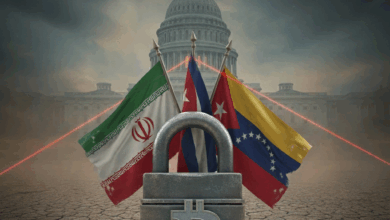U.S. Government Shutdown Enters Second Week, What Does It Mean?

The U.S. government shutdown has stretched into its second week, leaving key federal agencies, including the Securities and Exchange Commission (SEC) and Commodity Futures Trading Commission (CFTC), operating with minimal staff and curtailed functions.
The standoff began after Congress failed to pass a short-term funding measure to keep the government running past September 30.
With no agreement in sight, thousands of federal employees have been furloughed while others continue to work without pay, adding pressure to an already tense political impasse in Washington.
Legislative Deadlock Persists
As of Monday, lawmakers had yet to reach a deal to end the shutdown. The Senate was scheduled to vote on a continuing resolution at 5:30 p.m. ET, but uncertainty loomed over whether the measure would receive enough bipartisan support.
Democrats are insisting that any spending package include a reversal of healthcare cuts introduced in July, while Republicans have resisted adding new expenditures without broader fiscal reforms. The resulting gridlock has left much of the federal government running on limited capacity.
Impact on Financial and Crypto Regulators
The SEC confirmed it would continue operating “under modified conditions,” with a significantly reduced workforce focused on critical functions such as market monitoring and enforcement. However, this means reviews of crypto-related filings (including spot Bitcoin ETF applications) are effectively on hold until normal funding resumes.
The CFTC, which currently has only one acting commissioner, is facing similar constraints. The lack of personnel and leadership could delay rulemaking, enforcement actions, and broader progress on digital asset regulation.
“The U.S. government shutdown can damage the crypto industry by disrupting the SEC and CFTC, which are vital to global digital asset markets,” said Przemysław Kral, CEO of crypto exchange Zondacrypto. “While the immediate impact might seem limited, prolonged inactivity risks stalling innovation and shaking investor confidence.”
Political and Regulatory Ramifications
The shutdown also complicates efforts to advance the Digital Asset Market Structure Bill, a long-anticipated framework for U.S. crypto regulation. With Congress at a standstill, movement on the legislation is effectively frozen.
Adding to the uncertainty, the White House recently withdrew the nomination of Brian Quintenz as CFTC chair following reported pushback from prominent industry figures, including Gemini co-founders Cameron and Tyler Winklevoss. The decision leaves the agency without clear direction as it navigates one of its most constrained operational periods in years.
Markets Bet on a Prolonged Standoff
Prediction markets are signaling that investors expect the shutdown to drag on. On Kalshi, traders priced in a nearly 70% probability that the standoff would last more than 15 days, while Polymarket users estimated a 24% chance of it surpassing the record 35-day shutdown that occurred during Donald Trump’s first term.
While the immediate impact on financial markets has been limited, analysts warn that an extended shutdown could weigh on investor sentiment, delay regulatory approvals, and slow down the country’s economic recovery efforts.





